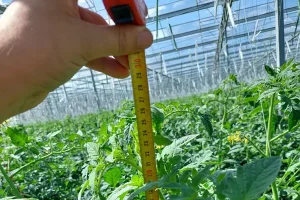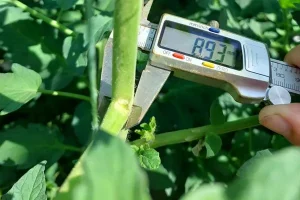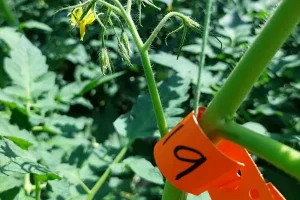For entrepreneurs and investors in the agricultural sector, particularly those focused on sustainable vegetable cultivation, the advent of new ToBRFV-resistant tomato varieties presents both opportunities and challenges. As growers integrate these new varieties, proper crop registration and data analysis become essential tools for maximizing yields and maintaining plant health.
The Importance of Accurate Crop Registration
Willem Valstar of StarGrow Consultancy highlights the critical role of accurate crop measurements in managing new tomato varieties. “When I hear growers say things like, ‘It’s behaving differently than last year,’ I always say, ‘Let’s look at the numbers.’ With proper crop measurements, you’re not just relying on feelings or thoughts,” Valstar explains. This data-centric approach is crucial for understanding the unique behaviors of these vigorous new varieties.
The rise of ToBRFV-resistant varieties was driven by urgent need, often resulting in limited practical testing before large-scale cultivation. “This sometimes surprises you with how vigorous some new varieties are,” observes Valstar. Despite their robustness, these varieties can vary significantly in their generative and vegetative growth patterns, necessitating careful monitoring.

Leveraging Technology for Improved Crop Management
The model-based crop planning platform ProJoules offers growers a powerful tool for tracking and analyzing crop data. By registering weekly growth measurements, growers can build detailed data profiles that help in understanding and managing crop behavior. “Both young and old growers are increasingly relying on numbers rather than gut feelings,” says Valstar.
ProJoules automatically provides variety profiles, though the initial information from breeding companies may lack detail. Through consistent data collection and registration, growers can enhance these profiles, facilitating better decision-making and improved crop outcomes.
Practical Benefits and Insights from the Field
Field experiences and data-sharing among growers have proven invaluable. Frank Dekker, for example, observed significant improvements in his irrigation system using advanced technology. “The inside of the pipe was so clean, I just had to send a photo,” Dekker shares. Such firsthand accounts underscore the practical benefits of integrating new technologies and precise data management in greenhouse operations.
In challenging climatic conditions, such as the darker and wetter spring experienced in the Netherlands, precise data analysis helps growers adapt. By converting production data to light units, growers can better understand the impact of environmental factors on crop performance. “There was a significant light deficit,” Valstar notes, yet production per light unit remained consistent year-over-year, revealing deeper insights into the interplay of light, temperature, and crop growth.

Maintaining Balance and Ensuring Long-Term Success
Achieving the optimal balance between generative and vegetative growth is crucial for long-term success. ProJoules facilitates this by allowing growers to link crop measurements with other cultivation data, thus developing a desired crop profile with set growth parameters. “Not too generative and not too vegetative,” Valstar emphasizes, highlighting the importance of maintaining both plant and environmental balance.
Moisture management remains a critical factor, particularly in energy-efficient cultivation. Valstar notes that dealing with moisture efficiently is essential to avoid issues like Phytophora and mildew. “You shouldn’t go too low in the energy you put into your cultivation,” he advises, stressing the need for balanced energy input to maintain optimal growing conditions.











